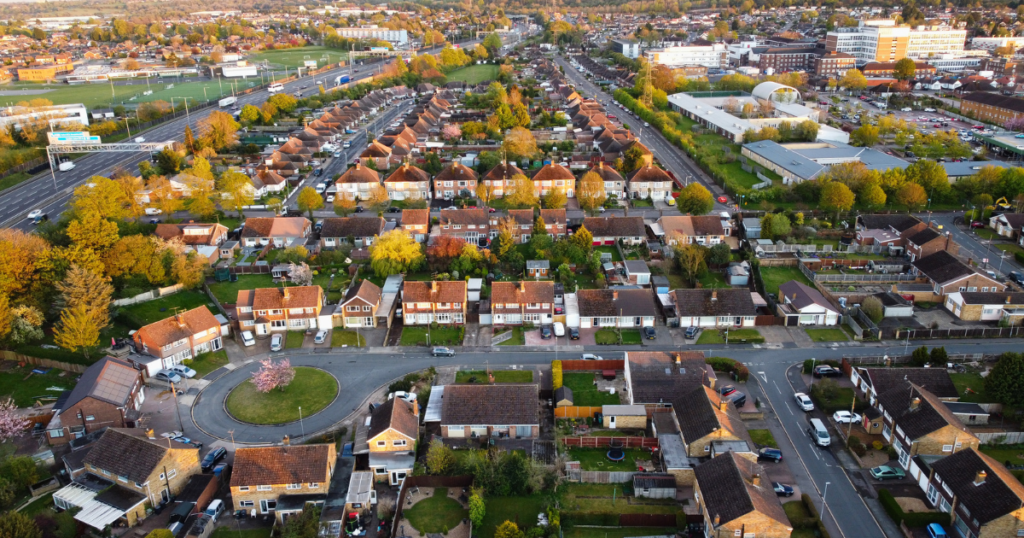Buying your first home is an exciting milestone, but it can also be overwhelming, especially if you’re a first-time home buyer in British Columbia (BC).
With the right knowledge and preparation, you can navigate the process smoothly and make informed decisions.
In this comprehensive guide, we’ll walk you through essential tips and information to help you become a confident first-time home buyer in BC.
Related: Real estate market trends in BC

1. Assessing Your Financial Readiness
Assessing your financial readiness is a crucial first step for any first-time home buyer, especially in the dynamic real estate market of British Columbia (BC). Here’s a detailed look at what this process entails:
Understanding Your Financial Position
Income Analysis: Review your regular income sources. This includes your salary, any supplemental income, and consistent freelance or part-time earnings. Lenders will look at your income stability and growth potential when considering your mortgage application.
Debt-to-Income Ratio: Calculate your debt-to-income ratio by dividing your monthly debt payments (like car loans, student loans, credit card payments) by your gross monthly income. A lower ratio is preferable, as it indicates a better capacity to take on a mortgage.
Credit Score Assessment: Your credit score plays a significant role in the home-buying process. A higher score can lead to better mortgage rates. Check your credit score and report for any errors or areas that need improvement.
Budgeting for a Home Purchase
Calculating Affordability: Determine how much you can afford to spend on a home. This includes considering the mortgage payment, property taxes, home insurance, and maintenance costs.
There are various online calculators available to help with this.
Down Payment Considerations: In BC, the minimum down payment is 5% of the home’s purchase price for properties less than $500,000.
For homes between $500,000 and $999,999, an additional 10% is required for the portion of the price above $500,000. Saving a larger down payment can reduce your overall loan amount and mortgage insurance costs.
Emergency Fund: Ensure you have an emergency fund in place. This fund should cover at least three to six months’ worth of living expenses, including your potential mortgage payments.
Additional Financial Considerations
Closing Costs: Closing costs in BC can include legal fees, property transfer tax, appraisal fees, and home inspection fees. These typically range from 2% to 5% of the purchase price.
Ongoing Costs: Be mindful of ongoing costs such as property taxes, strata fees (if applicable), utilities, and regular home maintenance.
Future Financial Goals: Consider how a home purchase aligns with your other financial goals, like retirement savings, education funds, or travel plans.
Government Programs and Incentives
First Time Home Buyers’ Program: This program offers exemptions from the property transfer tax for eligible first-time buyers in BC.
Home Buyers’ Plan (HBP): This federal program allows you to withdraw up to $35,000 from your RRSPs tax-free to buy or build a qualifying home, provided you meet the eligibility criteria.
By thoroughly assessing your financial readiness, you can approach the BC housing market with confidence, ensuring that your first home purchase is both a comfortable and financially prudent decision.
You might like: Family-friendly neighborhoods in British Columbia
2. Exploring Mortgage Options
Exploring mortgage options is a critical aspect of buying a home in British Columbia (BC).
Understanding the various types of mortgages, interest rates, and terms can help you make an informed decision that aligns with your financial situation. Here’s a detailed overview:
Types of Mortgages Available in BC
- Fixed-Rate Mortgages: This type offers a fixed interest rate for the entire term of the mortgage, typically ranging from 1 to 10 years. The main advantage is predictability in payments, as your interest rate won’t change during the term.
- Variable-Rate Mortgages: With variable-rate mortgages, your interest rate will fluctuate with the market. This means your monthly payment amount can change. These mortgages can offer lower initial rates compared to fixed-rate mortgages but come with the risk of rate increases.
- Adjustable-Rate Mortgages (ARMs): Similar to variable-rate mortgages, the interest rate on ARMs changes with the market. The difference is that the payment amount may change at every adjustment period, usually once a month, to reflect the current rate.
- Hybrid or Combination Mortgages: These combine features of both fixed and variable rate mortgages. Part of your mortgage is on a fixed rate, providing some stability, and the other part is on a variable rate, offering the potential benefit of lower rates.
Understanding Interest Rates
- Current Market Rates: Interest rates fluctuate based on economic factors and the Bank of Canada’s policy. It’s important to research current market rates and trends.
- Rate Comparison: Compare rates from different lenders, including banks, credit unions, and mortgage brokers. Sometimes, smaller lenders may offer more competitive rates.
- Impact of Credit Score: Your credit score can significantly impact the interest rate you are offered. Higher scores generally qualify for lower rates.
Mortgage Terms and Conditions
Term Length: Mortgage terms in BC typically range from 1 to 10 years, with 5 years being the most common. The term length you choose will affect your interest rate and payment flexibility.
Amortization Period: This is the total length of time it will take to pay off your mortgage in full. In Canada, the maximum amortization period is 25 years for a down payment less than 20%, and up to 30 years for higher down payments.
Prepayment Options: Some mortgages allow you to pay off your mortgage faster without penalties. Understanding prepayment options, such as lump sum payments or increasing your monthly payment, can save you money in interest in the long run.
Penalties and Fees: Be aware of penalties for breaking your mortgage term early, as well as any setup or administrative fees.
Choosing the Right Mortgage for You
Deciding between a fixed, variable, or hybrid mortgage depends on your financial situation, risk tolerance, and long-term financial goals. It’s advisable to consult with a financial advisor or mortgage broker to understand which option best suits your needs.
Recommended: Eco-friendly homes in BC
3. Choosing the Right Location
Choosing the right location is a pivotal decision for first-time home buyers in British Columbia (BC). It can significantly impact your lifestyle, the value of your investment, and overall satisfaction with your home. Here’s how you can approach this decision:
Researching Neighborhoods
Key Considerations in Neighborhood Research:
- Safety: Investigate the safety of different neighborhoods. This can include checking crime statistics, talking to local police departments, or simply observing the area during different times of the day.
- Schools: For those with or planning to have children, the quality of local schools is a major consideration. Look into school rankings, special programs offered, and the overall reputation of schools in the area.
- Amenities: Evaluate the availability of amenities like grocery stores, parks, restaurants, and recreational facilities. Proximity to these amenities can greatly affect your day-to-day life.
- Future Development Plans: Research any planned developments or changes in the neighborhood, as these can impact property values and the character of the area. This might include new commercial developments, public transportation projects, or changes in zoning laws.
Sources for Research:
- Online real estate listings often provide some neighborhood information.
- Local government websites for development plans and zoning information.
- Community forums and social media groups where residents discuss neighborhood issues.
Urban vs. Rural Living
Pros and Cons of Urban Living:
- Pros: Urban areas typically offer easy access to amenities, public transportation, diverse cultural and entertainment options, and more employment opportunities.
- Cons: Living in urban centers often comes with higher property prices, more traffic and noise, and potentially smaller living spaces.
Pros and Cons of Rural Living:
- Pros: Rural areas can offer more space, a quieter environment, closer proximity to nature, and generally lower property prices.
- Cons: The drawbacks include limited access to amenities, longer commutes to work or urban centers, fewer entertainment and dining options, and possibly limited access to healthcare and educational facilities.
Balancing Lifestyle and Work Location:
- Lifestyle Preferences: Consider what kind of environment you thrive in. Do you prefer the hustle and bustle of city life or the tranquility of a rural setting?
- Work Location: Your daily commute can significantly impact your quality of life. Living closer to work in urban areas might save time and transportation costs, whereas working from home could make rural living more feasible.
- Long-Term Plans: Think about your long-term lifestyle preferences and career plans. If you anticipate changes in your work location or lifestyle needs, choose a location that can accommodate these changes.
The decision between urban and rural living in BC should be based on a combination of practical considerations and personal preferences.
Thorough research into different neighborhoods and a clear understanding of the lifestyle each area offers will help ensure that your first home is in a location that meets your needs and enhances your quality of life.
Recommended: Rural Properties for Sale in British Columbia: Your Slice of Paradise
4. The Home Buying Process
The home-buying process in British Columbia (BC) involves several key steps, each of which plays a crucial role in ensuring a successful purchase. Here’s a brief overview covering the essential stages:
Finding a Real Estate Agent
- Role of an Agent: A real estate agent guides you through the entire process, leveraging their knowledge of the local market. They can identify listings that match your criteria, provide insights into neighborhood trends, and offer valuable advice.
- Selecting the Right Agent: Look for an agent with a strong track record in the area you’re interested in. Personal referrals, online reviews, and interviews can help you find an agent whose expertise and approach align with your needs.
- Negotiation and Support: An experienced agent will negotiate on your behalf, aiming to get the best possible deal. They also assist in navigating the complexities of the buying process, from the initial search to the final closing.
Viewing Homes
- Home Inspections: When viewing homes, inspect them carefully. Look for signs of structural issues, water damage, or needed repairs. Assess the overall layout and functionality to ensure it meets your needs.
- Red Flags: Be aware of potential red flags, such as cracks in the foundation, old roofing, outdated electrical systems, and signs of pest infestations. These issues can be costly to repair.
- Multiple Viewings: Consider visiting a property more than once, at different times of the day, to get a full picture of the home and the neighborhood.
Making an Offer
- Understanding the Process: Once you find a home you like, your agent will help you draft an offer. This includes the price you’re willing to pay and any conditions or contingencies.
- Contingencies to Consider: Common contingencies include a satisfactory home inspection and securing financing. These conditions protect you by providing an opportunity to renegotiate or withdraw your offer without penalty if issues arise.
- Negotiation: The seller may accept, reject, or counter your offer. Be prepared for some back-and-forth negotiation. Your agent will advise you on the best approach, considering market conditions and the specifics of the property.
Navigating the home-buying process in BC can be complex, but with the right real estate agent and a thorough approach to viewing homes and making an offer, you can make informed decisions and move forward with confidence toward purchasing your new home.
5. Home Insurance
For first-time home buyers in British Columbia (BC), securing home insurance is an essential step in the home-buying process. Here are the key reasons why home insurance is crucial:
Protection Against Financial Loss
- Coverage for Property Damage: Home insurance protects against financial loss due to damage from events like fire, storms, or burglary. In BC’s varied climate and environmental conditions, this protection is particularly important.
- Liability Coverage: It also provides liability coverage in case someone is injured on your property, protecting you from potentially expensive legal costs.
Mortgage Requirement
- Lender’s Requirement: Most mortgage lenders in BC require proof of home insurance before they will finalize a mortgage. This insurance safeguards the lender’s investment in your property as much as it does yours.
Peace of Mind
- Security and Confidence: Knowing that your home and possessions are protected can offer significant peace of mind. This is especially important for first-time buyers who are likely to invest a large portion of their savings into their property.
Personalizing Insurance to Your Needs
- Customizable Coverage: Home insurance policies can be tailored to the specific needs of your property and location in BC. This can include additional coverage for natural disasters, such as floods or earthquakes, which might be relevant depending on where you buy your home.
Home insurance is not just a requirement for securing a mortgage, but a vital protection for your investment and a safeguard against unforeseen events.
For first-time home buyers in BC, understanding and obtaining the right home insurance coverage is a key step in the homeownership journey.
Related: British Columbia condo buying guide (All You Need To Know)
6. Tips for Successful Home Buying
Stay Informed
- Understand Market Trends: Keep up-to-date with the real estate market trends in your desired area. This includes understanding current pricing, inventory levels, and buyer demand.
- Educate Yourself: Learn about the home buying process, mortgage options, and homeownership responsibilities. Knowledge is power, especially in real estate.
Be Patient
- Avoid Rush Decisions: Don’t rush into making an offer on a home. Hasty decisions can lead to overlooking important flaws or overpaying.
- Wait for the Right Fit: The right home will come along. Patience ensures you don’t settle for a property that doesn’t truly meet your needs.
Think Long-Term
- Future Needs: Consider how your needs might change in the next 5-10 years, such as family expansion or a job relocation.
- Resale Value: Even if you plan to stay long-term, consider the home’s potential resale value. Factors like location, size, and local schools can impact future saleability.
Maintain Financial Discipline
- Budgeting: Stick to your budget. Avoid being tempted by properties that stretch your financial limits.
- Emergency Fund: Keep an emergency fund for unexpected expenses after moving in, like repairs or maintenance.
Be Flexible
- Compromise is Key: It’s rare to find a perfect home within your budget. Be prepared to compromise on certain aspects, like size or cosmetic details.
- Open to Alternatives: Consider different neighborhoods or property types that offer better value or more of your must-haves.
Get Professional Help
- Real Estate Agent: A knowledgeable agent can guide you, provide valuable insights, and help negotiate deals.
- Legal and Financial Advice: Seek advice from legal and financial professionals to understand the implications of contracts and mortgage agreements.
Act Decisively
- Ready to Move: When you find the right property, be prepared to move quickly. Have your paperwork, such as pre-approval letters and deposit funds, in order.
Embrace the Journey
- Emotional Preparedness: Buying a home can be an emotional rollercoaster. Stay positive and remember that finding the right home is worth the effort.
- Celebrate Milestones: Celebrate the small victories along the way, like getting pre-approved or finding a home that ticks most of your boxes.
By following these tips, you’ll be better equipped to navigate the complexities of the home-buying process in BC or any location and make a purchase that aligns with both your current needs and future goals.
Conclusion
Buying your first home in British Columbia is a significant milestone. With careful planning, research, and the right support, you can navigate the process successfully and find a home that suits your needs and budget.



